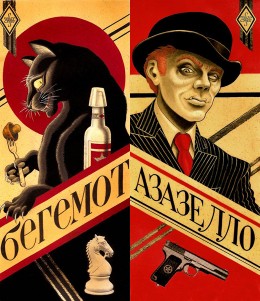PART 1
“’…So who are you, after all?’
‘I am a part of that power,
That ever wishes evil,
and ever accomplishes good.’”
Goethe, Faust
This a quote from Faust, but is also found at the beginning of the first chapter of a Russian novel I am translating. As I realized that I was translating a Russian translation of a German work I felt I was playing a game of ‘Whisper Down the Lane’, and wondered how I was contributing to a departure from the original statement.
The novel, Master and Margarita, by Mikhail Bulgakov, is one of the best known novels from the Soviet period. The story combines satire, farce and absurdity in ways that are both playful and dark at the same time. This follows a particularly Russian literary tradition (of which Nikolai Vasilievich Gogol is an outstanding example), that is often argued to be a response to efforts by the state to suppress dissent, and criticisms of political leadership. Russian writers learned they stood a better chance of getting away with such commentary by masking it with comedy, satire or fantasy, and readers learned to appreciate the underlying meanings.
The translation is slow going, but I love how each passage unfolds in the process, allowing me to more fully appreciate the art as well as the literal meaning of each sentence. This slow approach combines with my study of Russian history, culture and politics to give me greater insight into where Bulgakov is coming from and what he is trying to say. One passage that I especially love provides the first critique I’ve found by a Russian of what has become part of the Western narrative of Russia—an underlying streak of xenophobia, and mistrust of foreigners, that defines Russian society’s view of its place in the world. Continue reading “The “Foreigner””




